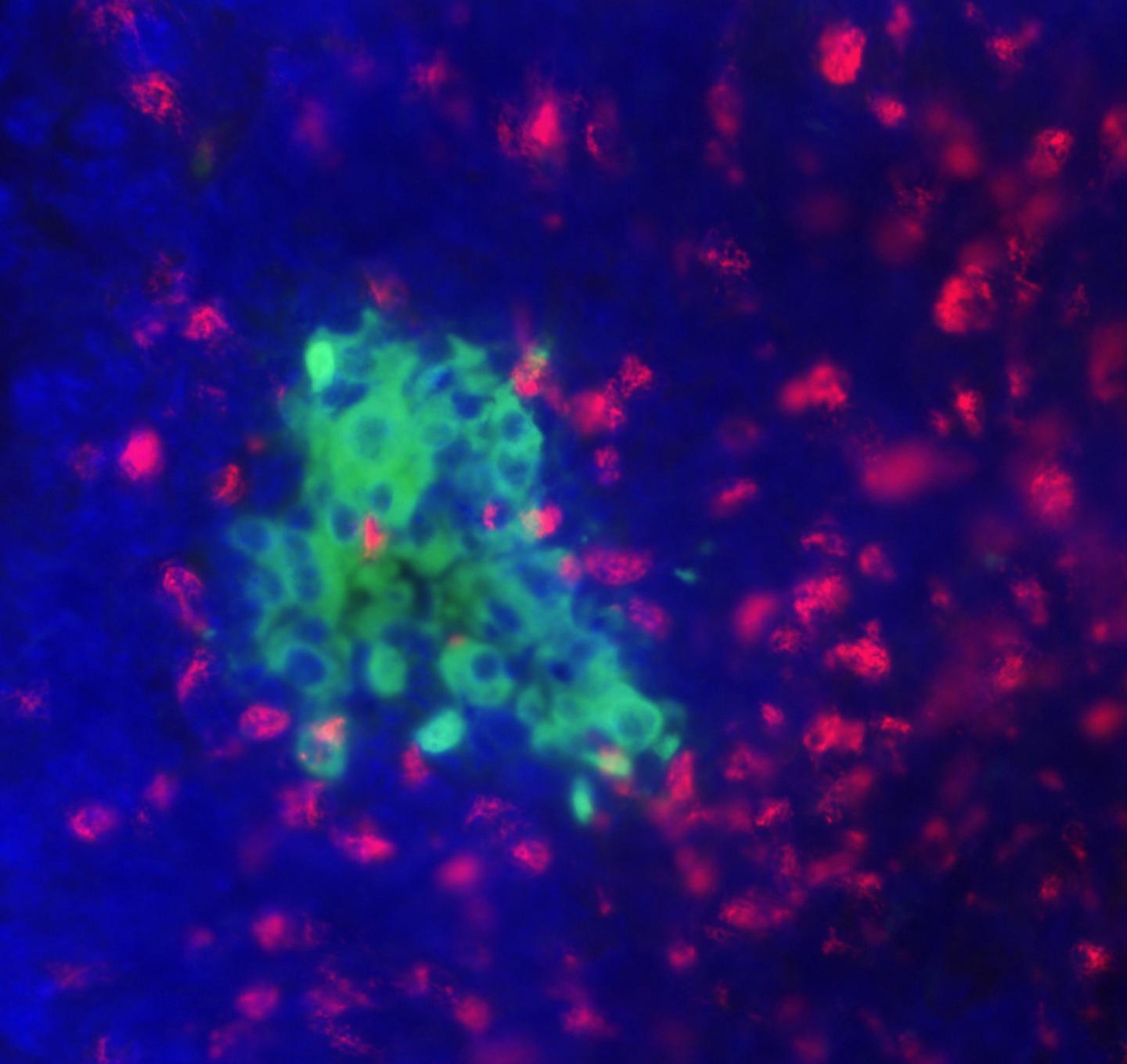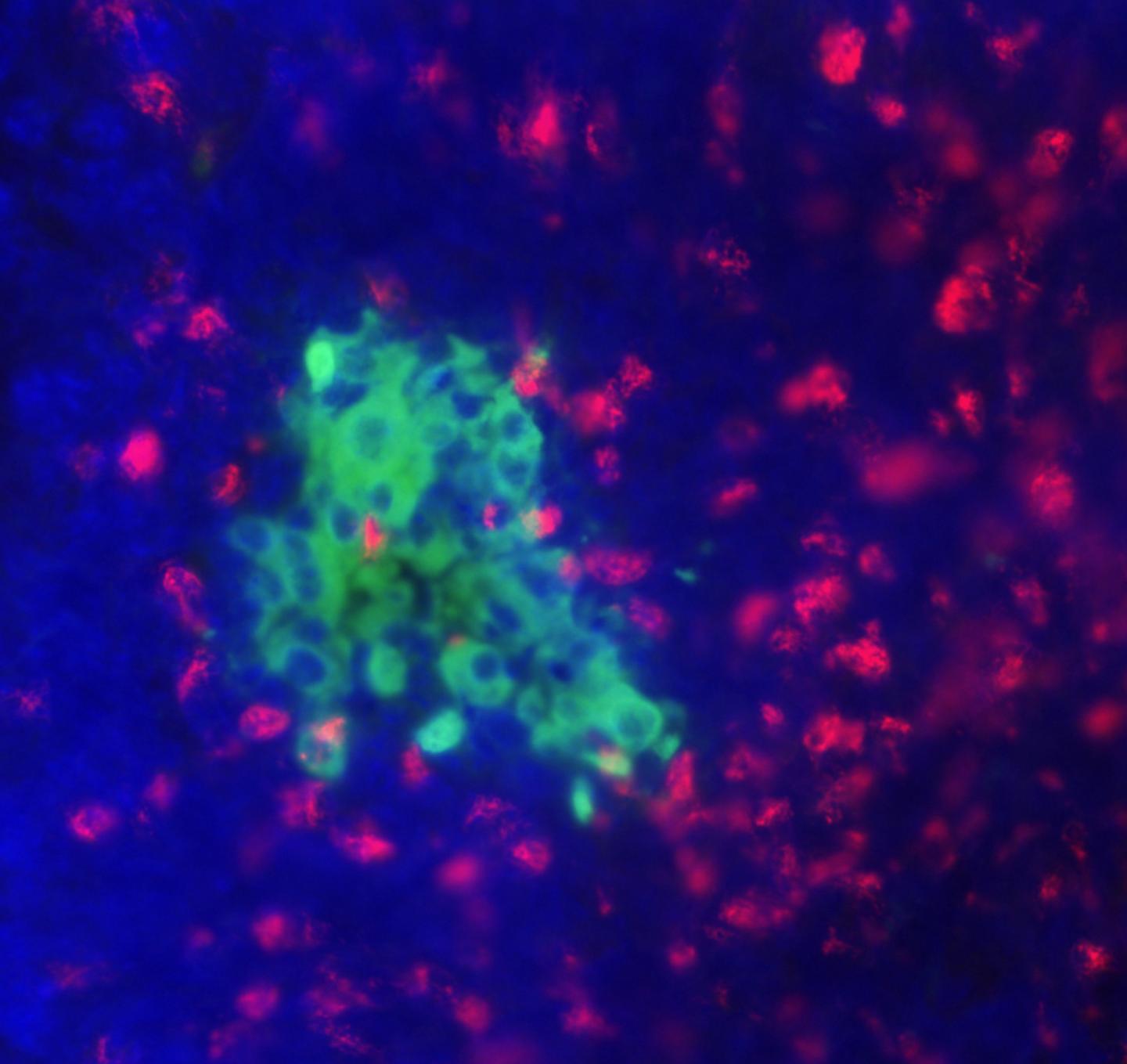
Type 1 diabetes affects 30,000 individuals throughout Germany and is the most common metabolic disease in children and adolescents. To halt the ever-increasing incidence, the young investigator group "Immunological Tolerance in Type 1 Diabetes" at the Institute of Diabetes Research directed by Prof. Dr. Anette-Gabriele Ziegler is exploring new strategies to prevent the onset of the disease.
In the current study, the scientists investigated the effect of specifically modified insulin mimetopes on the immune system.* "In particular, we wanted to find out whether we can induce the protective regulatory T cells to produce a tolerance of the body against insulin, if we bring them into contact with our novel peptides," said Dr. Carolin Daniel, who leads a young investigator group and directs the study.
Optimized mimetopes curb the immune system
The study is based on findings Daniel made several years ago at Dana Farber Cancer Institute and Harvard Medical School in Boston. There she showed that insulin mimetopes she optimized were significantly more efficient in inducing a tolerance through regulatory T cells towards insulin than their natural counterparts (epitopes). In young mice, the induction of insulin mimetopes at low doses completely halted the development of type 1 diabetes.
The next step was achieved in the study that has just been published: In a so-called humanized mouse model, whose immune system is very similar to that of humans, the scientists were able to confirm the results** – an important indication for the effectiveness of the optimized human insulin mimetopes.
"In fact, we were able to show that the new vaccine efficiently stimulates the regulatory T cells, which then can impede the attack of the immune system on the insulin-producing cells," said lead author Isabelle Serr, who was involved in the study within the framework of her dissertation.
In the long term Daniel and her group want to further develop the method for preventive treatment of children at high risk for type 1 diabetes. "An important step will be to test the new therapy clinically – that is our vision", said Daniel with regard to the future.
###
Further Information
Background:
* In patients with type 1 diabetes, the insulin-producing cells in the islets of Langerhans of the pancreas are destroyed because they are attacked by the body's own immune system (formation of islet autoantibodies against structures of beta cells). As a result, the pancreas can no longer supply the body with sufficient insulin. If the destruction of the beta cells exceeds a certain extent, the disease breaks out and blood glucose levels rise due to the lack of insulin. Source: http://www.Diabetesinformationsdienst-Muenchen.de
** The investigation of complex biological processes requires in vivo studies. Here the mouse is a preferred experimental model. Unfortunately, the transferability of such experiments to the human organism is not always given. Therefore, models in which human cells or tissue can be studied in an animal are becoming increasingly important. The "humanized mouse" represents an especially attractive translation model for studying diseases of the immune system. The benefits of such a model, however, depend on the ability to accurately mimic the human immune system. For this purpose, mouse models are used such as the HLA-DQ8 NOD/scid-IL2rgnull mouse model, which lacks an own murine immune system. These mouse models, for example, are reconstituted with human hematopoietic stem cells and subsequently enable successful engraftment and the development of a human immune system to study relevant processes in vivo.
Original publication:
Serr, I. et al. (2016). Type 1 diabetes vaccine candidates promote human Foxp3+Treg induction in humanized mice, Nature Communications, DOI: 10.1038/ncomms1099 Link: http://www.nature.com/ncomms/2016/160315/ncomms10991/full/ncomms10991.html
As German Research Center for Environmental Health, Helmholtz Zentrum München pursues the goal of developing personalized medical approaches for the prevention and therapy of major common diseases such as diabetes mellitus and lung diseases. To achieve this, it investigates the interaction of genetics, environmental factors and lifestyle. The Helmholtz Zentrum München has about 2,300 staff members and is headquartered in Neuherberg in the north of Munich. Helmholtz Zentrum München is a member of the Helmholtz Association, a community of 18 scientific-technical and medical-biological research centers with a total of about 37,000 staff members. http://www.helmholtz-muenchen.de/en/index.html
Technical University of Munich (TUM) is one of Europe's leading research universities, with more than 500 professors, around 10,000 academic and non-academic staff, and 39,000 students. Its focus areas are the engineering sciences, natural sciences, life sciences and medicine, reinforced by schools of management and education. TUM acts as an entrepreneurial university that promotes talents and creates value for society. In that it profits from having strong partners in science and industry. It is represented worldwide with a campus in Singapore as well as offices in Beijing, Brussels, Cairo, Mumbai, San Francisco, and São Paulo. Nobel Prize winners and inventors such as Rudolf Diesel, Carl von Linde, and Rudolf Mößbauer have done research at TUM. In 2006 and 2012 it won recognition as a German "Excellence University." In international rankings, TUM regularly places among the best universities in Germany. http://www.tum.de/en/homepage
The Institute of Diabetes Research (IDF) focuses on the pathogenesis and prevention of type 1 diabetes and type 2 diabetes as a long-term effect of gestational diabetes. A top-priority project is the development of an insulin vaccination against type 1 diabetes. In large-scale, long-term studies the IDF examines the implication of genes, environmental factors and the immune system in the pathogenesis of type 1 diabetes. Using data from the BABYDIAB cohort, which was established in 1989 as the world's first prospective diabetes birth cohort, risk genes and antibody profiles can both be identified. This allows predictions about the development and onset of type 1 diabetes and will change the classification and the time of diagnosis. The IDF is part of the Helmholtz Diabetes Center (HDC). http://www.helmholtz-muenchen.de/en/idf/index.html
The German Center for Diabetes Research (DZD) is a national association that brings together experts in the field of diabetes research and combines basic research, translational research, epidemiology and clinical applications. The aim is to develop novel strategies for personalized prevention and treatment of diabetes. Members are Helmholtz Zentrum München – German Research Center for Environmental Health, the German Diabetes Center in Düsseldorf, the German Institute of Human Nutrition in Potsdam-Rehbrücke, the Paul Langerhans Institute Dresden of the Helmholtz Zentrum München at the University Medical Center Carl Gustav Carus of the TU Dresden and the Institute for Diabetes Research and Metabolic Diseases of the Helmholtz Zentrum München at the Eberhard-Karls-University of Tuebingen together with associated partners at the Universities in Heidelberg, Cologne, Leipzig, Lübeck and Munich. http://www.dzd-ev.de/en/index.html
Contact for the media:
Department of Communication, Helmholtz Zentrum München – German Research Center for Environmental Health (GmbH), Ingolstädter Landstr. 1, 85764 Neuherberg – Tel. +49 89 3187 2238 – Fax: +49 89 3187 3324 – E-mail: [email protected]
Scientific contact at Helmholtz Zentrum München:
Dr. Carolin Daniel, Helmholtz Zentrum München – German Research Center for Environmental Health (GmbH), Institute of Diabetes Research, young investigator group "Immunological Tolerance in Type 1 Diabetes", Ingolstädter Landstr. 1, 85764 Neuherberg – Tel. +49 89 3187 2188 – E-mail: [email protected]
Media Contact
Dr. Carolin Daniel
[email protected]
49-893-187-2188
http://www.gsf.de





